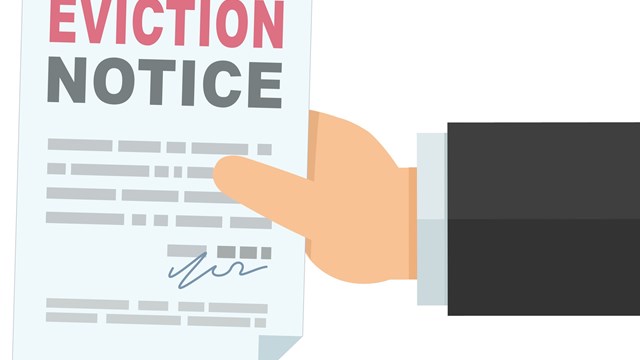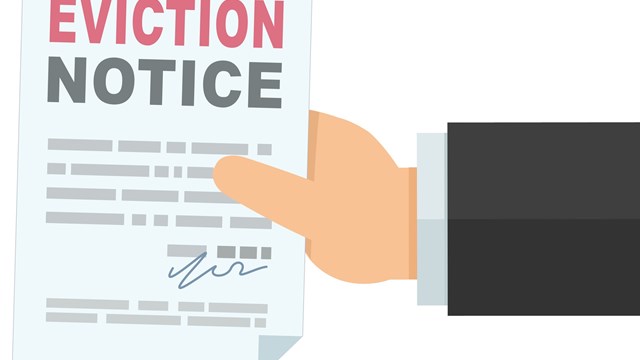
Q. If you live in a co-op and have a roommate, can’t you charge any amount of rent as long as your roommate agrees to it? As an example, if you live in a two-bedroom co-op and your maintenance is $2,500 per month, isn’t it legitimate to charge your roommate $2,000 per month? Also, does the co-op have the right to interview the roommate just as they would a purchaser? Roommates are generally not interviewed in buildings, to my understanding. Is it different in a co-op?
—Co-op Co-habitator
A. “To address the questions posed above,” says New York attorney Margery N. Weinstein, Esq., partner at law firm Schwartz Sladkus Reich Greenberg Atlas LLP in Manhattan, “we should begin by carefully reviewing the co-op’s governing documents—the certificate of incorporation, proprietary lease, house rules, board policies and procedures, and bylaws. These are the unique documents that establish the rights and obligations of the questioner and the non-shareholder resident within the questioner’s particular building.
“Initially, we must determine whether, under the governing documents and under law, the additional occupant in the questioner’s apartment is a roommate rather than a sublessee. Each co-op proprietary lease contains a use clause which specifies those persons, in addition to the shareholder, who are permitted to occupy and use an apartment; typically, immediate family members including spouses, parents, siblings, and children are included in the list of permitted residents. While the specific wording of these proprietary lease provisions varies from co-op to co-op, for the purpose of the above questions, permitted residents are neither roommates nor sublessees so long as the shareholder complies with all occupancy requirements set forth in her proprietary lease, including any co-occupancy requirement that may be in that proprietary lease.
“Provided the shareholder uses the apartment as her primary residence, then in addition to the co-op’s governing documents, Real Property Law Section 235-F (commonly known as the “Roommate Law”) is applicable to the questions posed. The Roommate Law provides that a lease cannot limit occupancy to the immediate family of the tenant; essentially, it protects New Yorkers’ rights to have roommates to whom they are not related. There are no carve-outs for cooperative proprietary leases in the statute; a co-op may not prohibit a shareholder from having a roommate, despite the specific wording of the proprietary lease’s use clause which limits permitted co-occupants to certain named family members. Thus, in addition to the family members listed as permitted residents in the proprietary lease’s use clause, roommates can also be non-related people who reside in the apartment concurrently with the shareholder.
“New York courts, including the Appellate Division in the First Judicial Department, have concluded that the Roommate Law does not permit the eviction of a tenant for making a profit on the rent charged a roommate (520 E. 81st St. Assoc. v Roughton-Hester, 157 AD2d 199, 202 [1st Dept 1990]; Handwerker v Ensley, 261 AD2d 190, 191 [1st Dept 1999]) and that ‘there is no cause of action for rent profiteering with respect to a roommate’ (Handwerker v Ensley, 261 AD2d 190, 191 [1st Dept 1999]). Following an examination of the New York City Administrative Code, the Rent Stabilization Code, as well as the legislative history of the Roommate Law, in one Appellate case the court explained as follows: ‘… many “roommates” are not strangers but individuals who choose to live together, apportioning the costs according to their respective financial abilities, and other considerations.’ (520 E. 81st St. Assoc. v Roughton-Hester, 157 AD2d 199, 205 [1st Dept 1990]). Notably, the tenants in these cases and others were tenants in rent-stabilized and loft apartments, not shareholders in cooperative apartment buildings. Nevertheless, these cases support a conclusion for allowing a shareholder-tenant to charge rent that exceeds maintenance, so long as her roommate agrees to the amount. In the questioner’s example, a shareholder-tenant in a two-bedroom co-op whose maintenance is $2,500 per month may be able to point to existing case law for the right to charge her roommate $2,000, without such rent being challenged.
“The second part of the questioner’s inquiry—whether a co-op board has the right to interview a roommate just as they would a purchaser—is also controlled by the Roommate Law. A co-op shareholder, just like any other tenant in New York, has the right to have a roommate under the Roommate Law. Thus, a mandatory interview might appear to be an exercise in futility. However, co-op boards should encourage such meetings to welcome shareholders’ roommates to their buildings, and to make the roommates aware of any unique rules, procedures, and expectations for building residents. In addition, if the questioner is a prospective co-op purchaser, rather than an existing co-op shareholder, the contract of sale form and customary board application process both require all proposed adult occupants to be available for a board interview, and the prospective shareholder and her roommate would be wise to comply to facilitate board approval of the purchase.
“The Roommate Law only applies if the apartment is the shareholder’s primary residence. If this is not the case, or if the shareholder will not be present during the residency of the non-shareholder, under most proprietary leases the non-shareholder is often considered a ‘sublessee.’ For example, a sublease may occur if the shareholder moves out for either graduate school or a job relocation but plans to return to live in the apartment after the subtenancy ends. If the additional non-shareholder resident is a sublessee, rather than a roommate, we reach different conclusions as to the right of the shareholder-tenant to charge rent in excess of the maintenance, and whether the co-op board may require an interview.
“Most co-ops have strict procedures that must be followed with respect to subleases, and some co-ops disallow subleases altogether or allow them only in exigent circumstances and for very limited periods. Assuming sublets are allowed in the questioner’s co-op, if the questioner’s additional occupant is a sublessee, not a roommate, in connection with obtaining the co-op board approval the shareholder should review the co-op’s policies for restrictions as to the length of the occupancy term and the amount of rent that the shareholder may charge the sublessee. Many co-ops share in the profit made by the shareholder, if any, with the co-op receiving a percentage of rental payments to the extent such rent exceeds monthly maintenance fees. Also, most co-ops would require an interview with the prospective resident prior to approving the sublet, as they do with a prospective purchaser.”









Leave a Comment